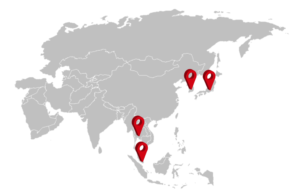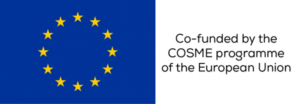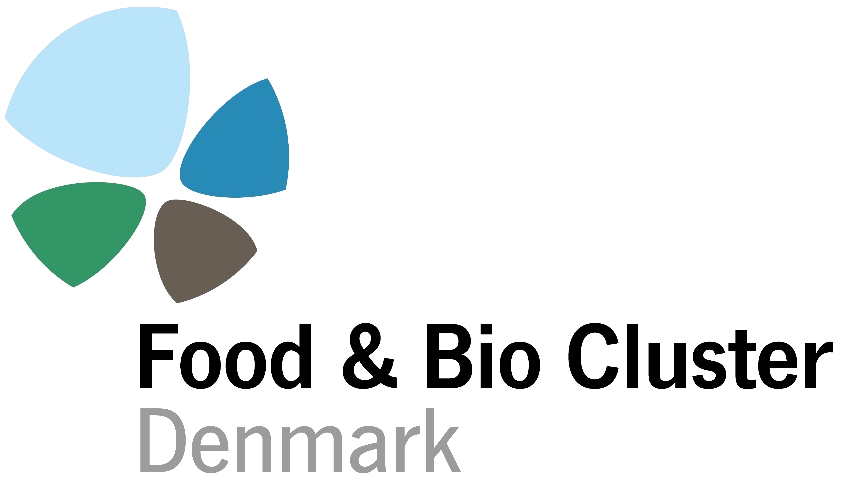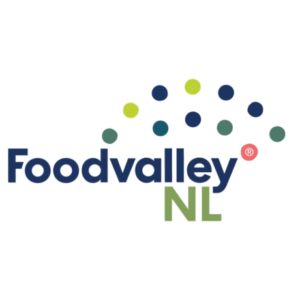The Project
THE PROJECT
Agri-food processes and transformations are currently responsible for more than 25% of human produced greenhouse gas emissions. A share which, if not addressed, will reach 50% by 2050. Food system activities, including producing food, transport, storage, and disposal of wasted food in landfills, produce greenhouse gas (GHG) emissions that contribute to climate change.
Making food systems sustainable for a growing global population is an imperative, and one that is technologically possible through collaboration and innovation. This paradigm shift involves a fundamental reconsideration of production and consumption, and it requires a global approach, bringing together a wide range of organisations and key stakeholders across the globe. While this appears to be a major challenge for the agri-food industry, it is also a major opportunity for European food companies, which have a technological lead in terms of production processes, including food safety, services and products that address environmental needs and climate change.
The goal of the GLOBAL FOODTURE project is to boost the sustainable transition of the food system globally through collaboration and innovation, by developing and implementing a joint internationalisation strategy that facilitates access to third countries for SMEs and strengthening participants’ capabilities to adapt to food sustainability challenges, bringing Europe’s industry to the driving seat in leading the transitions towards climate neutrality.
Targeted regions
Asia is home to over 4.5 billion people, making it the most populous continent on Earth with approximately 2/3 of the world’s population living there. The vast populations in Asia deliver a huge consumer market to companies.
While figures from 2020, show that Asia too was affected, the decline in GDP has been significantly less than in Europe and regional growth is expected to rebound to over 6% in 2021, as the pandemic subsides, global import demand recovers and capital flows to the region normalise again. GDP growth in most of the region’s economies far outstrips the OECD, and recent forecasts predict Asian economies will be larger than the rest of the world combined by the end of 2020. This will effectively make the global economy dependent on Asian markets, and it is therefore vital that there are significantly closer working links and connections between Europe and Asia for environmental, economic, and social reasons.

Japan is an extremely important economic player in the region, with a wealthy population of 127 million and a mature and developed market. The EU and Japan’s Economic Partnership Agreement entered into force on 1st February 2019, removing tariffs and other trade barriers, and creating a platform to cooperate in order to prevent obstacles to trade. The FTA is expected to increase EU-Japan trade by around €36 billion, according to figures from the European Commission. The agreement is particularly important for European food industries, protecting over 200 European Geographical Indicators, opening up the Japanese markets for meat products and removing protectionist tariffs on.
South Korea has transitioned to a developed economy and is today among the world’s top 15 economies measured in terms of overall GDP, with a per capita GDP comparable to many EU member states. Domestic agriculture is severely constrained by lack of available land, and a large, aging population and the country is heavily dependent on imports of food products. At present, Europe has a total export of food products to South Korea of around €3 billion in 2019, mostly for meat, alcohols and increasingly for processed foods, but still has a relatively small market share, though it has risen since the EU-South Korea Free Trade Agreement removed more tariffs on agri-food products in 2016.
While Singapore itself has a small domestic agriculture sector, it has a strong food retail and wholesale network and is seen as one of the main entry points to the ASEAN market, covering ten countries in Southeast Asia. The country has consistently been recognised among the world’s best places to do business and remains among the top choices for foreign business investors. The COVID-19 pandemic has however drawn Singapore’s attention to reliability of food supplies and there are currently major initiatives in place to develop new agricultural technologies within urban farming – where European SMEs can play an important role. Singapore has a Free Trade Agreement with the EU which came into force on 1st November 2019.
Thailand has one of the largest agricultural sectors in Asia and is a regional powerhouse for food production. The Thai government has recognised the importance of the sector to the economy and has a range of special economic policies and zones, supported by the Board of Investment, including long-term tax reductions and tax exemptions, with the aim of developing technologies to improve effectiveness, storage, logistics and environmental issues. Most of these are based around the Eastern Economic Corridor, east of Bangkok, which is also home to some of the largest food clusters outside Europe. Thailand also has a very well-developed food retail and wholesale sector, which ranges from up-market stores such as Villa Market and Rimping, large superstores such as Tesco Lotus and BigC, and around 13.000 convenience stores including 7-Eleven, Family Mart and Lawson 108. Thailand is also in the early stages of negotiating a Free Trade Agreement with the EU.
Both Singapore, and Thailand are often used as entry points to the rest of ASEAN. This opens all the fast-growing markets with 7-8% growth rates such as Cambodia, Myanmar, Indonesia, Lao PDR etc. All of the four target countries are also signatories to the November 2020 Regional Comprehensive Economic Partnership (RCEP), which includes all 10 ASEAN countries, as well as China, Australia, Japan, New Zealand, and South Korea. While the RCEP is very new, it covers effectively 30% of the world’s economic output and may provide an opportunity for closer cooperation for many European SMEs.
The overall long-term objective of the GLOBAL FOODTURE project is to create a worldwide network of clusters along the food value chain working to mitigate climate change. GLOBAL FOODTURE will create and develop the first of its kind Global Climate Alliance for Food, as the main living instrument ensuring the long-term sustainability of the partnership.
In order to achieve these aims, the GLOBAL FOODTURE project has a number of key specific objectives:
- To intensify cluster and business network collaboration across borders and sectors, by creating opportunities for mutual exchange of environmental and climate challenges, technologies, and mitigation processes, ensuring that clusters in Europe and Asia are aware of these issues and can work together to resolve them.
- Based on the needs of the Asian markets, and working closely with selected Asian cluster partners, to provide a range of market access services including online and physical missions and matchmaking events, which reinforcing cluster and business network cooperation and support the SMEs to internationalise and enter global markets.
- To support SMEs in global competition by providing a portfolio of support services and actions, integrating with other relevant service providers to maximise the opportunities available.
- To develop a pan-European Strategic Cluster Partnerships on Climate Change within the agri-food sector (provisionally Global Climate Change Alliance for Food) as an international cooperation, using European technologically based SMEs as a driver, to develop new markets in third countries, starting with Asia.
- To develop and promote a joint internationalisation strategy and support actions for SMEs to enter third country markets, with a particular focus on environment and climate change within the agri-food sector, with replication potential for other markets.
The objective of this plan is to maximise the impact and the dissemination of the project and its results, by providing targeted information to multiple audiences including clusters and SME members, as well as media, and potential multipliers from the business and innovation support community, including the Enterprise Europe Network.
The specific objectives include:
- Increasing the awareness among other clusters of the existence and importance of the project, its concept and its ultimate results, processes, and opportunities.
- Ensuring that SME members and SMEs from other clusters are provided with relevant information on cross-border opportunities in the target region, in order to take rational decisions on participation.
- Ensuring proper exchange of knowledge and activities among the consortium partners, and to facilitate interaction and information exchange with relevant stakeholders in Europe and Asia, including clusters, universities, research institutes, business and innovation support community, potential investors and SMEs.
- Utilising to the maximum extent possible the networks of the partners and existing relevant communication platforms.
- Marketing the post-project opportunities of a global climate alliance for food industries and acquiring potential member clusters.
Market analysis and relationships: consists in a market and gap analysis on the four targeted countries Japan, South Korea, Singapore and Thailand to identify the most relevant target regions in Asia for European companies within the agrifood sector and to identify the most relevant cooperation partners with whom the consortium will work closely not only to identify key needs in the markets where European technologies, products and services may be relevant but also to support the future project activities. The analysis will be followed by a workshop to determine the overall strategy, proposed missions, objectives and to provide the basis for the international strategy plan.
SME and GLOBAL FOODTURE ecosystem identification: identifying relevant food system related product and service provider SMEs and other stakeholder organisations, including business support organisations, research organisations, cooperatives and others, and systematically populate them in already existing, sustainable, open and free European DIH AGRIFOOD COOPERATION PLATFORM.
International training programme: holistic support programme for internationalisation that unlocks the capacities of SMEs to improve their competitiveness and internationalisation capabilities aimed at the target countries, and a suitable global framework to facilitate export promotion and cross-sectoral cooperation.
International missions and matchmaking: missions towards the target countries to support innovation collaboration to boost sustainable transition of the food system, and (online) matchmaking events between European and Asian SMEs within the food value chain. During the missions, the SMEs will have the opportunity for individual, face-to-face meetings as well as site visits to enable a full exchange of information and to cement a business relationship.
Exploitation and sustainability: set of support services for participating companies to support them in their journey throughout the project, identifying the needs of the SMEs and tailor support actions accordingly.
Creation of the Global Climate Alliance of Food as the main living network among the targeted stakeholders, and as an exchange channel with policy makers & authorities.










